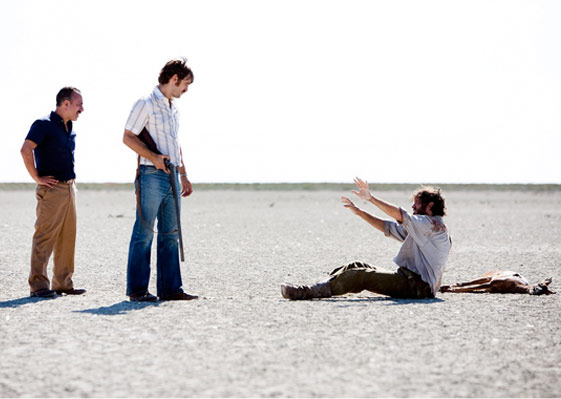 Photo: Warner Bros
Photo: Warner Bros
A recently released Spanish thriller casts light on the country’s compromised transition to democracy. Marshland by Alberto Rodríguez is reviewed by Jim Aindow
Francisco Franco, the Spanish dictator, died in 1975 after 36 years of brutal fascist rule. There were popular struggles as the regime came to an end, but no revolution and no thoroughgoing clear out of Franco’s accomplices. Instead, Spain took a faltering, timid path to democracy.
Marshland is a new Spanish film, set in 1980; it’s a dark, tense, noir that takes a sideways look at Spain’s fledgling democracy. It’s part of a long overdue popular discussion of this period that is now taking place in Spain.
Beautifully filmed around the Guadalquivir river and its marshes, it begins with aerial views of an abstract, alien, unknowable landscape. Its here we begin to follow a pair of detectives on their way to investigate the disappearance of teenage sisters in a backwater town.
One of the cops, Pedro, is young and ambitious, out to make a career in the new Spain, the other, Juan, is older, heavy drinking, quick to violence, and with his best days behind him.
The sisters mutilated bodies are soon discovered, these are not the first young women to go missing, and the detectives uncover a network that grooms and abducts them for sexual exploitation.
A picture emerges of a backward, superstitious society where emblems of the fascist past are still present, and fear and corruption never far from the surface.
The deeper they dig though, the more explicit the instructions are from their bosses to limit the scope of the investigation. The older cop implicitly understands what is required, who not to implicate. Pedro though is frustrated & resorts to the kind of underhand deals and violent intimidation more expected of his older companion. It’s then that Pedro becomes aware of Juan’s sinister activities under the old regime.
It’s a film that is limited by its genre, where illumination & resolution comes from without, the detectives, whilst the victims of crime are mere props in the plot. This is disappointing; especially post TV’s ‘The Killing’ where the feelings and motivations of the grieving family were at least thought worthy of exploration.
Its strength though, is in a way what isn’t said or explained. It’s Pedro’s silence regarding his partner’s crimes that best illustrate the compromise between the outgoing dictatorship and the emerging democracy, where in order to avoid a rupture or crisis, the past is not spoken of, where crimes go unpunished, where justice can only go so far.

